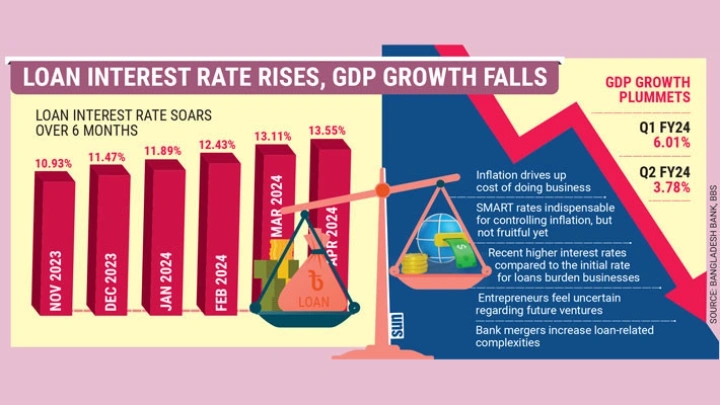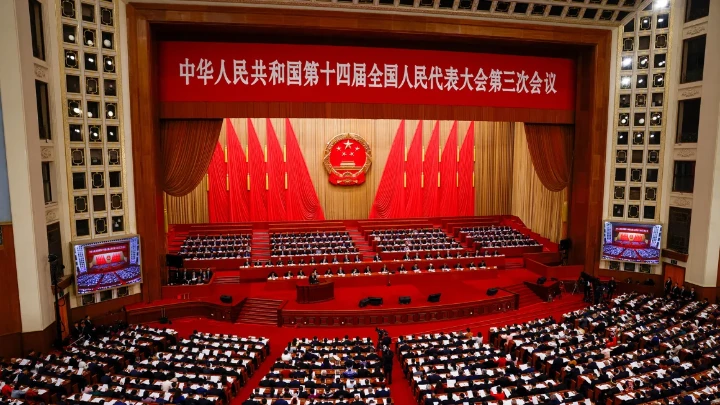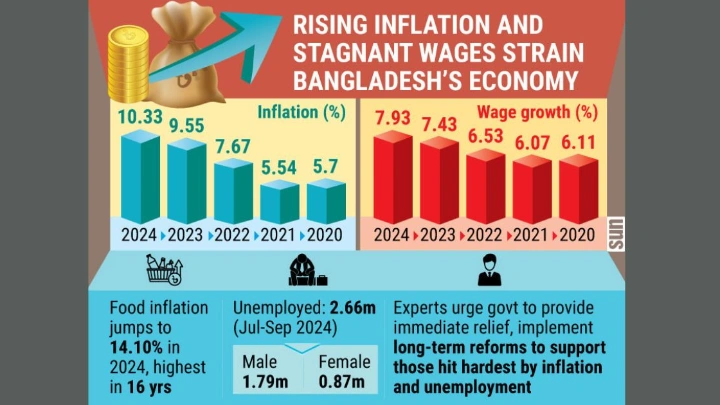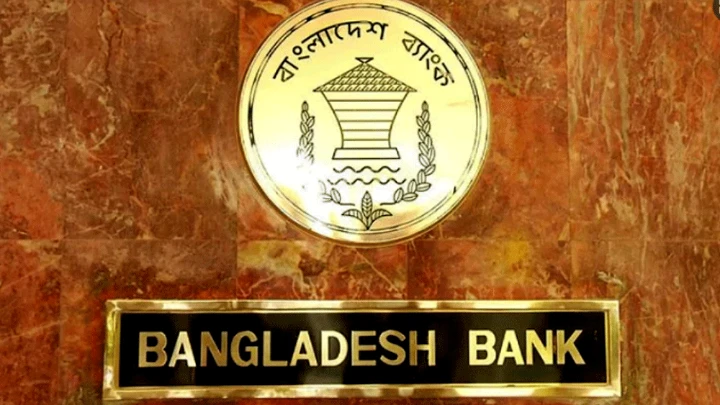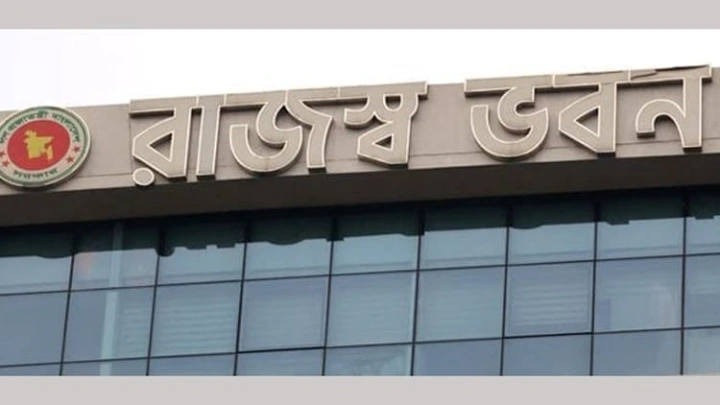SMART rate and inflation bite, businesses fight
DailySun || Shining BD
The Bangladesh Bank started setting the banks’ final lending rate with SMART rate, the Six-Month Moving Average Rate of Treasury Bill, last year to control inflation and boost the economy that was distressed by the pandemic fall outs and geopolitical situation.
After launching the SMART rate implementation, the loan interest rate has soared steadily, adding to the businesses’ woes stemming from tough economic conditions, according to businesspeople.
Amid all these developments, the country’s growth in gross domestic production (GDP) fell to 3.78% in the second quarter of FY24 from 6.01% in the first quarter of this fiscal year.
Different countries have chosen the formula of raising bank interest rates to control inflation, which has yielded good results for them. Bangladesh decided to do the same through a monetary policy in July last year, but it became effective in October that year.
Consequently, many traders found the new rates exorbitant, felt uncertain about future interest rates, and became cautious about taking new ventures.
On the other hand, due to mismanagement and irregularities in the banks, interest rates are being increased to a higher level than usual. This has a negative impact on the country’s overall production, which is affecting the GDP, said traders.
Ashraf Ahmed, president of the Dhaka Chamber of Commerce and Industry (DCCI), told the Daily Sun that if the deposit rate is 6% to 7%, and loan interest rate is 12% to 13%, then the difference here is 6%. This is caused by the banking sector’s inefficiency. This type of expenditure should be reduced.
Rizwan Rahman, ex-president of DCCI, told the Daily Sun that raw material prices have already gone up due to inflation. The cost of doing business and the labour cost have also jumped. The rising interest rate on bank loans is putting businesses at risk in this situation.
“We took loans at 8% to 9% interest at the time of starting the business, but now I have to pay 14% to 15% interest on that loan. Where will I get the extra money?” said Rizwan.
Besides, the recent announcements of bank mergers have created new problems in getting loans.
“No one can know in advance when the merger will happen with any bank. As a result, fear has arisen among traders. Everyone is busy paying off old loans rather than taking new ones,” said the former DCCI president.
Jahangir Alam, an entrepreneur in the garment sector, said, “Businessmen’s ability to pay their debts is decreasing. For delaying instalment payment, a penalty of 2% or more has to be paid. After taking a loan at 9% interest rate, we are paying more than 13% interest. Why should one give it? This is disrupting our production. Recruiting new manpower has become difficult now.”
Dr Zahid Hussain, former lead economist of the World Bank’s Dhaka office, told the Daily Sun that the Bangladesh Bank has implemented a SMART rate to control inflation. At the moment there is no alternative to it. However, even after implementing the SMART rate, inflation cannot be brought under control.
Interest rates are rising by leaps and bounds
According to Bangladesh Bank data, the lending rate in the banking sector crossed 13.55% in April this year. It was 13.11% in March, 12.43% in February, 11.89% in January, 11.47% in December, and 10.93% in November.
In April 2020, the Bangladesh Bank fixed the maximum interest rate on bank loans at 9%. However, when the country’s economy faced a crisis due to the pandemic and the onset of wars in different countries, the central bank introduced the new SMART rate – six-month average interest rate of 182-day treasury bills – to determine the interest rate of bank loans from June last year.
At the end of every month or on the first day of a month, the Bangladesh Bank informs commercial banks the SMART interest rate, which becomes applicable for new loans disbursed in the following month. That means the SMART interest announced in December will be applicable for the month of January. However, the interest rate cannot be changed at the client level every month. The interest rate prevailing at the time of borrowing money will be effective for a customer for six months from the month he took the loan.
According to the Bangladesh Bank data, during the first two months of the current fiscal year – July and August of 2023 – the loan interest rate was 7.10% and 7.14%, respectively.
Then, in September and October of that year, the rate was increased to 7.20% and 7.43%, respectively. In November and December 2023, it was further raised to 7.72% and 8.14%, respectively.
The benchmark interest rate at the end of January 2024 was 8.68%. In February of this year it was 9.61% and in March it jumped to 10.55%.
Banks are allowed to add 3% to the SMART rate to determine their lending interest. Previously, banks were permitted to add 3.50% to the benchmark rate.
The Asian Development Bank (ADB) has predicted that Bangladesh’s GDP growth in the current fiscal year may drop to 6.1%. However, in the next fiscal year, it may increase to 6.6%, said the ADB’s Asian Development Outlook (ADO) April 2024 report published on Thursday.
Shining BD

